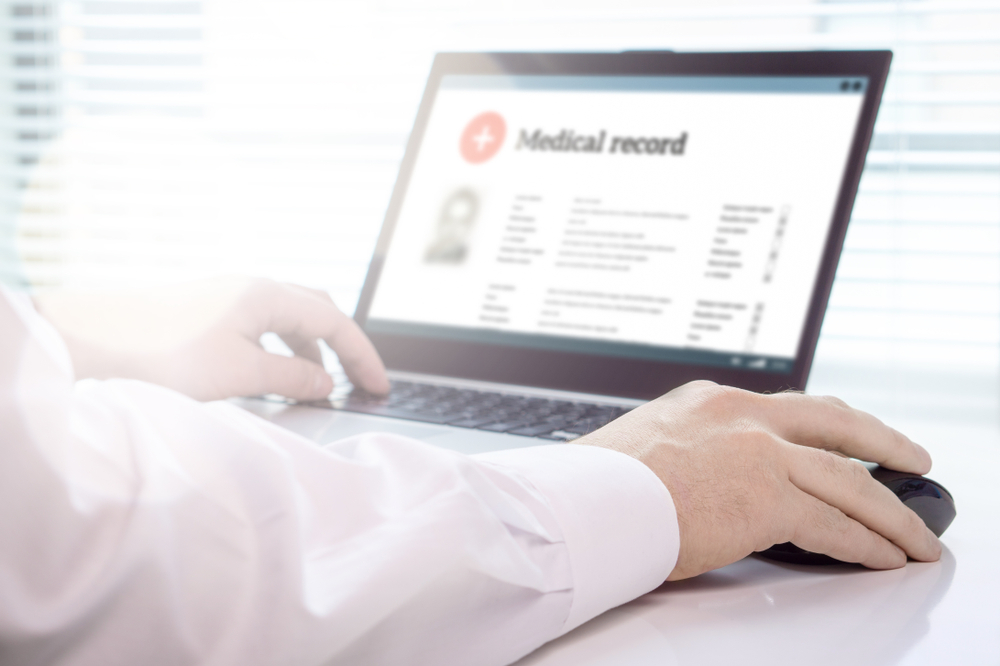Urgent care doesn’t have to mean long waits or crowded clinics. Telemedicine makes care faster, safer, and more accessible, helping providers and patients manage common concerns efficiently.
The adoption of Electronic Health Records (EHR) across the United States has skyrocketed in the past few years. According to statistics, 96% of general acute care hospitals had integrated electronic health record software into their systems by 2021. This mass adoption of EHR software stems from its positive impact on the quality of patient care.
Electronic health records (EHR) also decrease the administrative workload in a healthcare setup. However, the efficiency of an EHR system depends on the reliability and intuitiveness of the EHR software. Instead of just storing data, this new approach to patient data sharing has paved a new way to better patient care.
Nonetheless, most importantly, EHR software serves as a valuable resource for healthcare providers. This innovative system allows healthcare providers to deliver better patient care, leading to favorable outcomes. Here, we discuss the top five ways EHR software enhances the quality of patient care.

1. Provides a Broad Overview of a Patient’s Health
EHR software offers a comprehensive overview of a patient's health. It gathers data from various sources, compiling information about medical history, allergies, medications, and past diagnoses. This consolidated view equips healthcare professionals with quick access to critical patient details. It ultimately aids in more informed and timely decision-making.
This digital platform also allows easy tracking of a patient's health over time, ensuring that healthcare providers have a historical context. From previous treatments to test results, all data is efficiently organized and accessible. This overview is crucial to tailoring personalized care plans and interventions based on a patient's unique medical background and current health status.
With a broad understanding of a patient's health at their fingertips, medical teams can detect patterns, identify trends, and recognize potential risks. They can proactively address concerns, make precise diagnoses, and design care strategies that align with the patient's specific needs and preferences. Overall, electronic health record software significantly elevates the quality of patient care.
2. Aids With Accurate Diagnosis
EHR software significantly contributes to accurate diagnoses by organizing patient data in a structured, accessible manner. All relevant information, including medical history, test results, and consultations, is readily available to healthcare providers. This availability allows for a more comprehensive understanding of the patient's condition, aiding in precise and timely diagnoses.
The software facilitates real-time collaboration and communication among healthcare professionals involved in a patient's care. This seamless exchange of information ensures that all clinicians are informed of the latest developments and insights. It enables a collective effort to analyze symptoms and medical data. This collaboration ultimately leads to a more accurate diagnosis and a more effective treatment plan.
Moreover, EHR systems often integrate clinical decision support tools, providing alerts or suggestions based on established medical guidelines. This assists healthcare providers in considering all possible diagnoses and choosing the most appropriate course of action. The system's prompts can act as valuable reminders, reducing the likelihood of oversight and enhancing diagnostic accuracy.
3. Helps Prevent Adverse Effects
EHR software plays a crucial role in averting adverse effects on patients. In fact, a study revealed that three New York City dialysis centers reported a 48% reduction in patient mortality after implementing an electronic health record.
By maintaining a detailed and centralized record of a patient's medical history, including allergies and sensitivities, healthcare providers can quickly identify potential risks. This allows them to make informed decisions and prescribe medications that minimize the likelihood of adverse reactions.
Alert systems integrated into EHRs act as safety nets, providing real-time notifications about possible drug interactions or allergies. These alerts prompt healthcare professionals to reevaluate prescriptions and select alternatives. This ultimately ensures the safety and well-being of the patient. The system's vigilance substantially reduces the occurrence of medication-related complications.
Additionally, EHRs aid in tracking patient progress and response to treatments. Due to this regular monitoring, healthcare teams can identify any adverse effects early in the process, allowing for timely interventions. This proactive approach promotes patient safety and contributes to a higher quality of care by preventing potential complications and ensuring a smoother recovery.
4. Ensures Patient Engagement and Compliance
EHR software actively engages patients in their healthcare journey by providing accessible and understandable information about their conditions and treatment plans. Patients can view their medical records, lab results, and upcoming appointments. Thus, it fosters a sense of involvement and understanding in their own health management.
Through secure patient portals, individuals can communicate with their healthcare providers, seeking clarifications or sharing concerns. This direct line of communication strengthens the patient-provider relationship, ensuring a more engaged and compliant approach to healthcare. Patients are more likely to adhere to prescribed treatments and advice when they feel heard and informed.
Furthermore, appointment reminders and medication alerts integrated into EHR systems promote compliance with treatment plans. That’s because patients receive timely notifications, reducing the chances of missed appointments or medication doses. This proactive approach contributes to better health outcomes and elevates the overall quality of care received by the patients.
5. Reduces Financial Burden on Patients
EHR software significantly reduces patients' financial burden by streamlining healthcare facility administrative processes. Efficient digital record-keeping and billing systems lead to reduced administrative costs. This reduced administrative cost, in turn, can lower the overall expenses of medical services. These cost savings can be passed on to patients, making healthcare more affordable and accessible.
Moreover, accurate and complete electronic records prevent unnecessary duplicate tests or procedures, saving patients from paying for redundant exams. The centralized data within EHRs allows healthcare providers to make more informed decisions. Thus, EHR systems help avoid unnecessary expenses while maintaining the quality and effectiveness of treatments.
EHRs facilitate quicker insurance claim processing by ensuring all necessary documentation is in order. This efficiency expedites the reimbursement process, relieving patients of prolonged waiting periods and financial strain. The prompt settlement of claims ensures that patients can focus on their health without worrying about the financial aspect of their care.

High Quality of Patient Care Leads to Practice Success
A commitment to providing high-quality patient care is beneficial for patients and essential for the success of healthcare practices. That’s because patients receiving top-notch care are more likely to return to the same healthcare facility for their ongoing medical needs. This loyalty contributes to patient retention, which is a cornerstone of practice success.
Word-of-mouth referrals also play a significant role in the growth of healthcare practices. Patients who have had positive experiences with high-quality care are more inclined to recommend the healthcare practice to friends and family. Thus, this organic form of marketing can lead to a steady influx of new patients, ensuring the practice's continued growth and success.
Moreover, healthcare facilities that consistently deliver exceptional care often receive higher ratings and reviews. Online reviews and ratings are crucial in today's digital age. That’s due to the fact that potential patients often rely on them to make informed decisions about their healthcare choices. Positive reviews and high ratings can attract more patients and enhance the practice's reputation, further solidifying its success.
Practice EHR - ONE that Boosts the Quality of Patient Care!
Practice EHR offers high-standard electronic health records and practice management services. With its highly intuitive and resourceful EHR software, Practice EHR can become a handy tool for healthcare providers to deliver optimal patient care. Additionally, integration and onboarding are never a problem because of the exceptional customer service that Practice EHR provides to its clients.
REQUEST A DEMO today and elevate the quality of patient care with unparalleled services of Practice EHR!
Topics: Patient Care, EHR Solution, New Technology, digital age, Practice EHR News, Medical Billing, Quality of Patient Care
RECENT POSTS



TOPICS
- EHR Solution (193)
- EHR (127)
- digital age (120)
- Patient Care (117)
- Medical Billing (112)
- Specialty-Specific EHR (112)
- Industry Update (98)
- Technology in Healthcare (84)
- EHR Features (79)
- Small Practice (78)
- Medical billing services (74)
- Integrated EHR (64)
- RCM (64)
- HIPAA Security (62)
- Cloud-based EHR (44)
- New Technology (44)
- Telemedicine (44)
- Healthcare Office Management (40)
- Practice EHR News (38)
- Kiosk (31)
- Revenue Cycle Management (28)
- AI Solutions (25)
- ePrescribing (21)
- AI Scribing (17)
- Best EHR Software (17)
- Practice Management Software (13)
- AI-powered Medical Billing (12)
- EMR (12)
- TeleVisit (12)
- AI EHR (11)
- Practice Automation (11)
- AI Scribe (10)
- Client Favorites (10)
- The ONE (10)
- Switching to New EHR (9)
- Urgent Care (9)
- AI scanning (8)
- Best EHR Practice (8)
- EHR Integration (8)
- MACRA/MIPS (8)
- Patient Portal (8)
- Psychiatry EHR (8)
- Automated Health Tools (6)
- E-Prescribing (6)
- Medical Practice Management Software (6)
- Product Updates (6)
- events (6)
- MIPS (5)
- Mobile EHR (5)
- Telehealth Platforms (5)
- Family Medicine EHR (4)
- HIPAA (4)
- Insider (4)
- Integrated Practice Management (4)
- Internal Medicine EHR (4)
- MIPS Reporting (4)
- Multilingual AI Scribe (4)
- Orthopedics EHR (4)
- Podiatry (4)
- Podiatry EHR (4)
- Regulatory Updates (4)
- Telehealth Platform (4)
- Automated EHR (3)
- Chiropractic EHR (3)
- Digital Experiences (3)
- EHR Flaws (3)
- EHR Implementation (3)
- EHR for Chiropractors (3)
- EHR for Small Practices (3)
- Eligibility Verification in Medical Billing (3)
- Medical Coding Services (3)
- Patient Check-in Kiosk (3)
- PracticeEHR GO App (3)
- Cash Flow (2)
- Cashless Payments (2)
- Clearinghouse (2)
- Dermatology EHR (2)
- EHR Scheduling (2)
- Family Medicine (2)
- Foot and Ankle Care (2)
- Foot and Ankle EHR (2)
- Health records 101 (2)
- Healthcare Compliance Certification (2)
- Medical Billing Partner (2)
- Medical Credentialing (2)
- Pediatrics EHR (2)
- Quality of Patient Care (2)
- Reporting Under MIPS (2)
- Risk and Liability in Medical Settings (2)
- Voice-Activated AI Scribe (2)
- What Works Clearinghouse (2)
- ACA Subsidy (1)
- AI Scan (1)
- AI Scribe for Pediatric Care (1)
- Bariatric EHR (1)
- Behavioral Health Practices (1)
- Billing Communication (1)
- Billing for Private Practices (1)
- Cardiology EHR (1)
- Charting (1)
- Data Security (1)
- Dos and Don'ts (1)
- EHR Dashboard (1)
- EHR Guides (1)
- EHR KPIs (1)
- EHR Questions to Ask (1)
- EHR Transition (1)
- EHR for Chronic Illness (1)
- EMR vs EHR Difference (1)
- ENT EHR (1)
- Endocrinology EHR (1)
- Gastroenterology (1)
- Gastroenterology EHR (1)
- General Surgery EHR (1)
- Geriatric AI scribe (1)
- Geriatrics EHR (1)
- Guides (1)
- Healthcare Practice Office Management (1)
- Help Center Videos (1)
- Insurance Reimbursement (1)
- KPI (1)
- Key Performance Indicators (1)
- Lab Processing (1)
- MACRA (1)
- Nephrology EHR (1)
- Neurology EHR (1)
- Pain Management EHR (1)
- Patient Behavior (1)
- Pediatric Care (1)
- Physical Therapy EHR (1)
- Practice Cash Flow (1)
- Practice Efficiency (1)
- Pulmonology EHR (1)
- Reconsider Your EHR (1)
- Simplify Practice Management (1)
- Staffing in Healthcare (1)
- Switch Medical Billing Providers (1)
- Urgent Care Medical Billing (1)
- Urology EHR (1)
- insurance claim denials (1)








